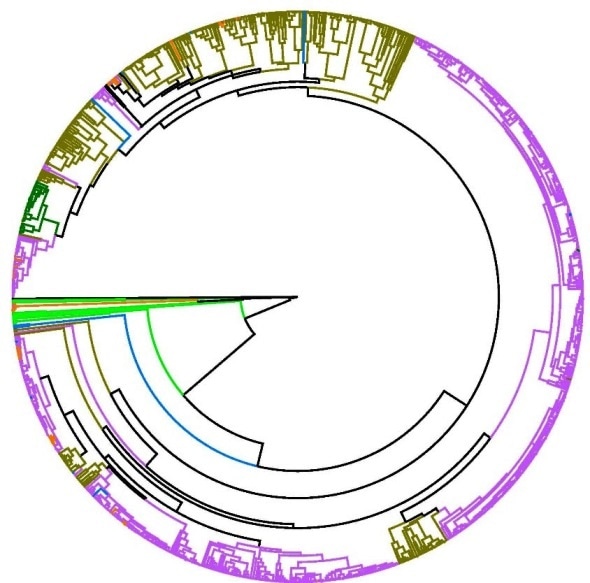Nov 16 2018
Bartonella bacteria are disease-causing, blood-borne pathogens found in various mammal species. A study in PLOS Neglected Tropical Diseases by Hannah Frank and colleagues at Stanford University, California suggests that humans play an important role in disease risk, infection patterns, and distribution of Bartonella, advancing current understanding of Bartonella’s evolutionary history and how the bacteria may be transmitted between humans and other animal species.

Circular phylogenetic tree of Bartonella. Credit: Frank, et al. (CC BY 4.0, 2018)
Cross-species Bartonella transmission poses a threat to public health, wildlife, and domestic animals. However, the evolution of Bartonella strains and mechanisms of cross-species transmission are not well understood. To determine the bacteria’s evolutionary history and global distribution, researchers constructed global phylogenies using sequences accessed from public databases and built models to test their hypotheses. Additionally, they analyzed instances of Bartonella spillover from animals to humans using genetic isolates and case data collected from scientific literature.
The authors note that “phylogenetic inferences about the origin of infections should be interpreted with caution as they are heavily influenced by available data and the taxa that have been sampled.”
More data are needed to verify findings and fill in remaining knowledge gaps. However, their study advances scientific understanding of human impacts on the spread of infectious disease: "In thinking about disease transmission between animals and humans, we often focus on the animals as the source of new human infections and not the role of the humans in influencing their own risk. Our findings suggest that humans play a significant role in changing infection patterns not only for ourselves but for our domestic animals and wildlife, too."
Source: https://www.plos.org